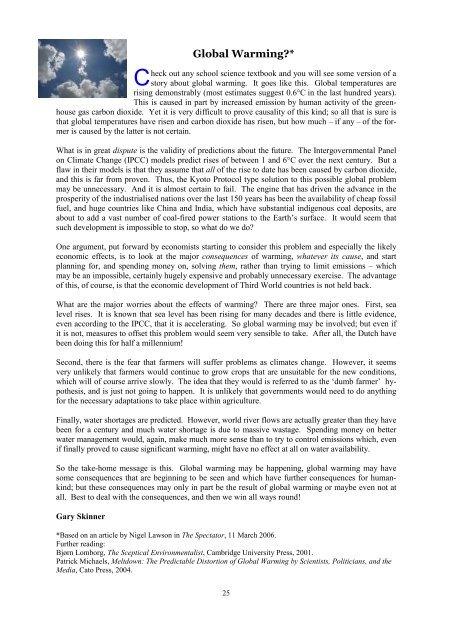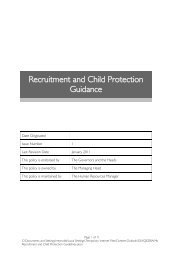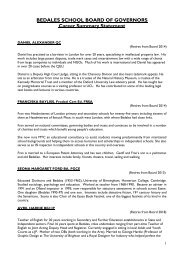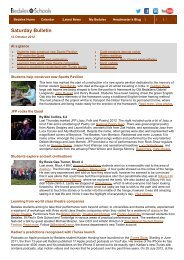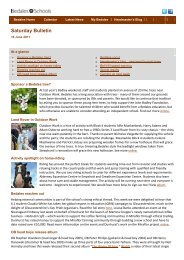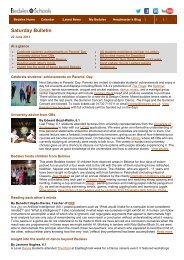You also want an ePaper? Increase the reach of your titles
YUMPU automatically turns print PDFs into web optimized ePapers that Google loves.
Global Warming?*heck out any school science textbook and you will see some version of aC story about global warming. It goes like this. Global temperatures arerising demonstrably (most estimates suggest 0.6°C in the last hundred years).This is caused in part by increased emission by human activity of the greenhousegas carbon dioxide. Yet it is very difficult to prove causality of this kind; so all that is sure isthat global temperatures have risen and carbon dioxide has risen, but how much – if any – of the formeris caused by the latter is not certain.What is in great dispute is the validity of predictions about the future. The Intergovernmental Panelon Climate Change (IPCC) models predict rises of between 1 and 6°C over the next century. But aflaw in their models is that they assume that all of the rise to date has been caused by carbon dioxide,and this is far from proven. Thus, the Kyoto Protocol type solution to this possible global problemmay be unnecessary. And it is almost certain to fail. The engine that has driven the advance in theprosperity of the industrialised nations over the last 150 years has been the availability of cheap fossilfuel, and huge countries like China and India, which have substantial indigenous coal deposits, areabout to add a vast number of coal-fired power stations to the Earth’s surface. It would seem thatsuch development is impossible to stop, so what do we do?One argument, put forward by economists starting to consider this problem and especially the likelyeconomic effects, is to look at the major consequences of warming, whatever its cause, and startplanning for, and spending money on, solving them, rather than trying to limit emissions – whichmay be an impossible, certainly hugely expensive and probably unnecessary exercise. The advantageof this, of course, is that the economic development of Third World countries is not held back.What are the major worries about the effects of warming? There are three major ones. First, sealevel rises. It is known that sea level has been rising for many decades and there is little evidence,even according to the IPCC, that it is accelerating. So global warming may be involved; but even ifit is not, measures to offset this problem would seem very sensible to take. After all, the Dutch havebeen doing this for half a millennium!Second, there is the fear that farmers will suffer problems as climates change. However, it seemsvery unlikely that farmers would continue to grow crops that are unsuitable for the new conditions,which will of course arrive slowly. The idea that they would is referred to as the ‘dumb farmer’ hypothesis,and is just not going to happen. It is unlikely that governments would need to do anythingfor the necessary adaptations to take place within agriculture.Finally, water shortages are predicted. However, world river flows are actually greater than they havebeen for a century and much water shortage is due to massive wastage. Spending money on betterwater management would, again, make much more sense than to try to control emissions which, evenif finally proved to cause significant warming, might have no effect at all on water availability.So the take-home message is this. Global warming may be happening, global warming may havesome consequences that are beginning to be seen and which have further consequences for humankind;but these consequences may only in part be the result of global warming or maybe even not atall. Best to deal with the consequences, and then we win all ways round!Gary Skinner*Based on an article by Nigel Lawson in The Spectator, 11 March 2006.Further reading:Bjørn Lomborg, The Sceptical Environmentalist, Cambridge University Press, 2001.Patrick Michaels, Meltdown: The Predictable Distortion of Global Warming by Scientists, Politicians, and theMedia, Cato Press, 2004.25


